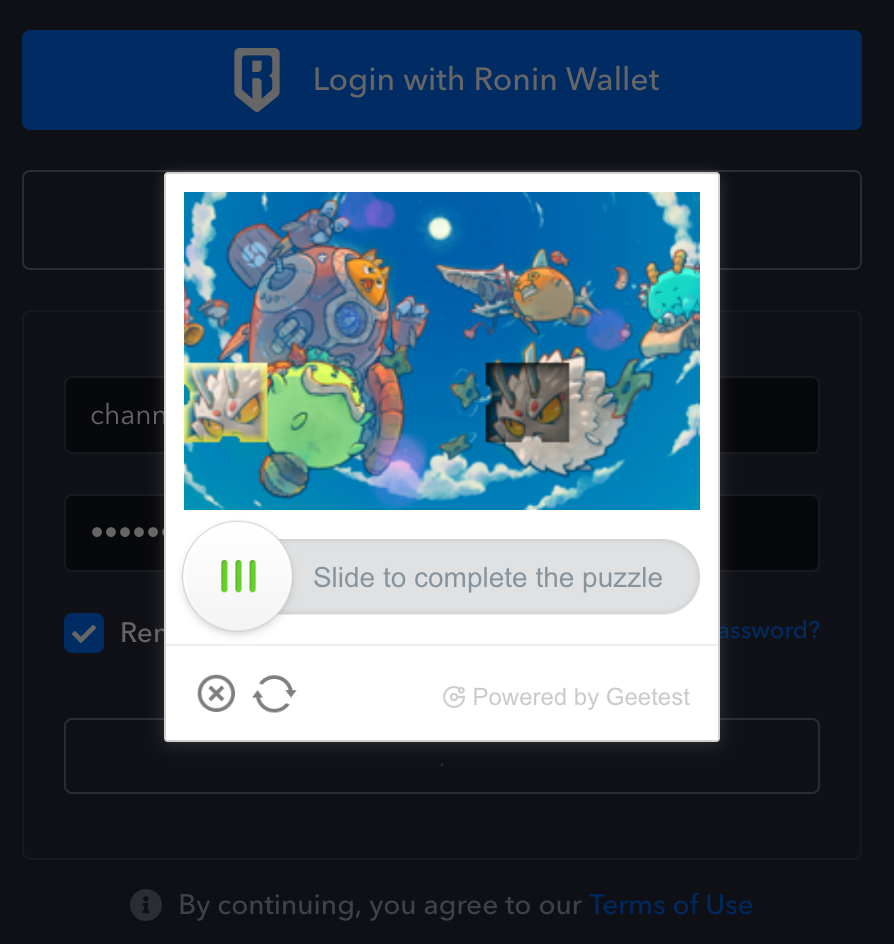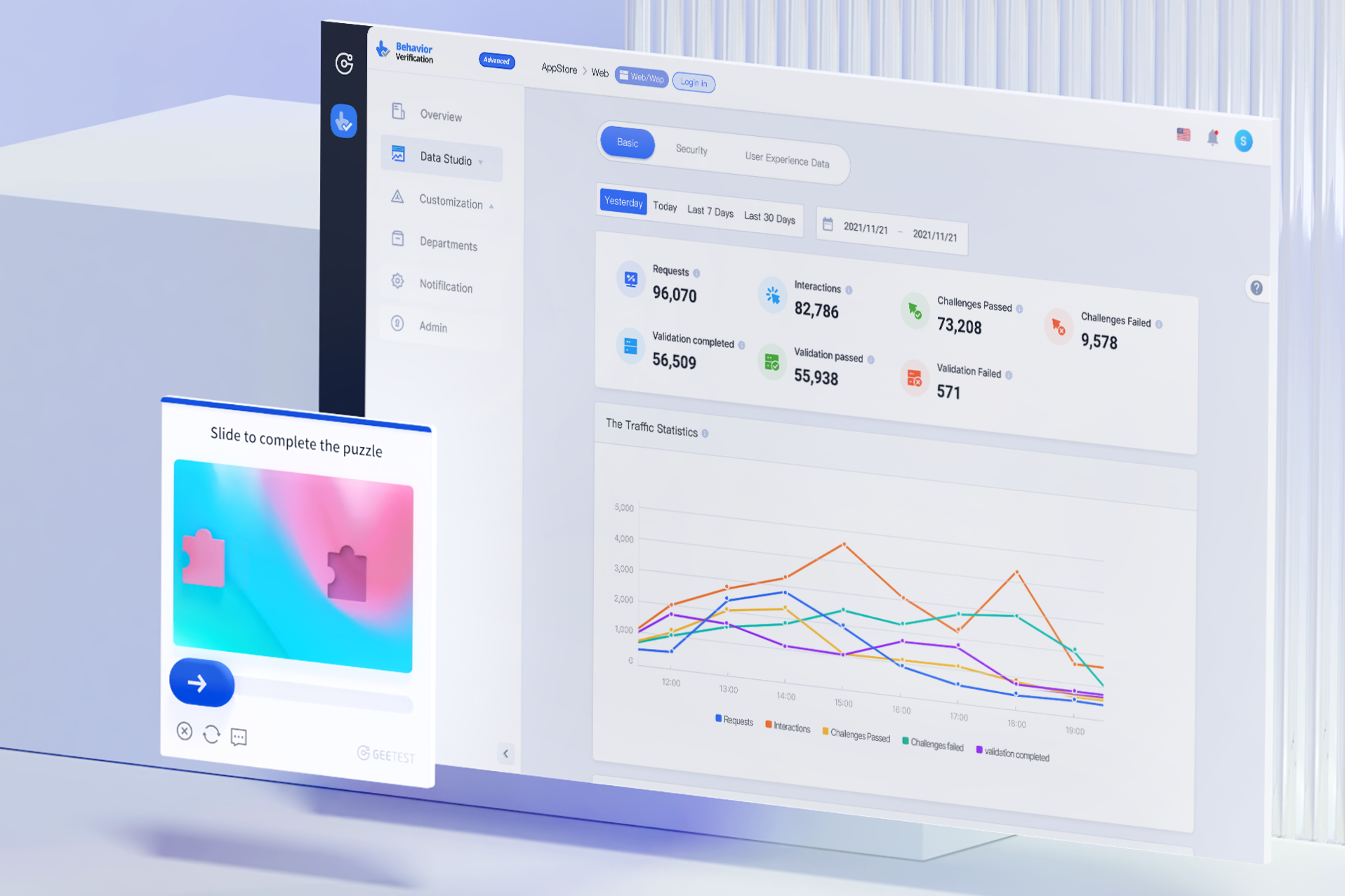Breaking the Scalping Cycle: A Look at Ticketmaster Fiasco of Bot Defense
09 Feb 2023 • 10 min read
Breaking the Scalping Cycle: A Look at Ticketmaster Fiasco of Bot Defense
09 Feb 2023 • 10 min read
Ticketmaster has been through a bot attack during the ticket sales of Taylor Swift’s tour last year, which sheds light on the ongoing Beyoncé ticket sales. The need for updated and effective anti-scalping measures has been emphasized again, such as the implementation of CAPTCHA, to ensure fair ticket distribution and protect fans' interests.
Understanding Ticket Scalping
Ticket scalping, or bulk ticket purchase, involves purchasing large quantities of tickets through unethical or illegal means, often using automated software (bots), and reselling them at inflated prices. This practice frustrates genuine fans and buyers who cannot secure tickets at face value and exposes them to the risks of ticket fraud. Scalping can also undermine consumer trust in ticketing platforms and compromise the event experience.
Impact of Ticket Scalping
- Inflated Ticket Prices: Scalpers drive prices up, making events unaffordable for many fans.
- Ticket Shortages: Scalping creates artificial scarcity, preventing legitimate buyers from accessing tickets.
- Revenue Loss for Organizers: Profits diverted to scalpers hurt event organizers and artists.
- Website Security Risks: Scalper activity increases vulnerabilities for ticketing platforms.
- Discontent Among Fans: Fans lose out on the chance to attend events, eroding their trust in the system.
The Case for Fighting Scalping
Anti-scalping efforts are essential to:
- Enhance the ticket-buying experience.
- Protect fans from inflated prices and fraudulent practices.
- Maximize revenues for event organizers.
- Streamline the sales process for efficiency and fairness.
- Strengthen security and reduce fraud risks.
Scalper Techniques and Their Prevalence
Common Methods Used by Scalpers
- Automated software (bots): Scalpers use auto scripts, also known as bots, to buy tickets in bulk, leading to a shortage of tickets for regular buyers and fans.
- Building unsecured reselling channels: Scalpers resell tickets through unsecured channels such as online marketplaces and social media, which can increase the risk of ticket fraud and other security issues.
- Fraudulent ticket sales: Scalpers may also use stolen credit cards to purchase tickets or print fake tickets.
Why Scalping Persists
There are several reasons why ticket scalping remains a prevalent issue:
- The popularity of the entertainment industry: With a high demand for popular events, scalping often happens where the demand for tickets exceeds the supply. Scalpers can take advantage of regular consumers by purchasing large quantities of tickets and then reselling them at a higher price.
- The absence of regulation: In many countries, ticket scalping is not illegal, or the regulations are not effectively enforced, which makes it difficult to prevent scalping and hold scalpers accountable.
- Easy access to tickets: With the rise of online ticket sales, it has become easier for scalpers to purchase large quantities of tickets, making it more difficult for genuine fans to obtain tickets.
- Insufficient anti-scalping measures: Scalpers have easy access to tickets through ticket websites, such as Ticketmaster. Despite the efforts of event organizers and ticket providers, scalping bot prevention measures can still be bypassed or outdated.
- Economic incentives: The high demand for tickets and the significant profits provide strong economic incentives for scalpers to continue their activities.
Ticket scalping remains a major issue, not only in the entertainment industry but also the industries where scalpers use illegal methods to acquire high-demanded goods and resell them for profit, leading to increased prices and decreased availability for regular buyers. To combat this, effective anti-scalping measures and bot management solutions need to be implemented.
Fighting Back: Strategies for Fair Ticket Access
CAPTCHA: A First Line of Defense
CAPTCHA technology offers an effective method to combat scalper bots. By requiring human interaction during the ticket-buying process, CAPTCHA ensures that tickets are sold to genuine fans. It works by:
- Distinguishing humans from bots during logins and purchases.
- Preventing bulk purchases by adding friction to the buying process.
Steps for Effective CAPTCHA Implementation
CAPTCHA technology helps to protect against automated bot attacks, including account takeover, credential stuffing, card cracking, etc, offers fair access to tickets for regular buyers, and reduces ticket fraud and security risks for buyers.
Follow the steps below to make sure both buyers and ticket websites are safe during hot sales.
- Implement CAPTCHA for the ticket sales processes, such as user registration, sign-in, and order.
- Ensure the CAPTCHA system is regularly updated to stay ahead of attackers.
- Offer different types of CAPTCHA, such as slide CAPTCHA, audio challenge or click-and-pass verification, to prevent bots from bypassing them.
- Provide clear instructions for users on how to complete CAPTCHA challenges.
- Use CAPTCHA in combination with other bot management measures, such as honeypot and 2FA.
- Regularly monitor and evaluate the effectiveness of CAPTCHA in stopping scalper bots and take necessary actions to improve its efficiency.
How GeeTest CAPTCHA Can Help?
GeeTest Adaptive CAPTCHA helps defeat bots by using advanced AI and machine learning algorithms to create a dynamic and evolving bot detection and mitigation system that is difficult for bots to bypass. It constantly adapts to new bot attacks and improves its ability to differentiate between humans and bots.
Additionally, GeeTest CAPTCHA stands out as a superior alternative to reCAPTCHA by incorporating advanced risk-based analysis to bolster its bot protection capabilities. Utilizing an innovative combination of image recognition, motion analysis, and sophisticated risk evaluation, GeeTest Adaptive CAPTCHA delivers a powerful and reliable defense against scalper bots. This cutting-edge approach not only safeguards ticket sales but also prioritizes fairness by ensuring that tickets are accessible to genuine fans and buyers. By offering both robust security and an intuitive user experience, GeeTest CAPTCHA addresses the evolving challenges of bot-driven ticket scalping with unmatched efficiency.

Try GeeTest Adaptive CAPTCHA today for free! Try the Demo here.
Key Features of GeeTest Adaptive CAPTCHA
- Advanced Bot Detection: GeeTest CAPTCHA v4 is equipped with advanced bot detection techniques that accurately distinguish between humans and bots.

- User-friendly Interface: The interface is designed to be simple and user-friendly, providing an optimal experience for users while improving security.

- Customizable Design: The CAPTCHA can be customized to match the design of your website, providing a seamless and consistent user experience.

- Customizable and Scalable: GeeTest offers customizable options to fit the specific needs of a business or event, and can scale to accommodate any size or volume of ticket sales.

Alternative Measures to Stop Ticket Scalping
Network security measures are a lot more robust today than they were just a few years ago, but the increasing sophistication of bots and scalpers means that they are still a major challenge for event organizers and ticket providers.
In addition to CAPTCHA, platforms should adopt a multi-layered approach:
- Identity Verification: Use mobile verification or ID checks to confirm buyers’ authenticity.
- Smart Queueing Systems: Implement intelligent queue mechanisms to manage high-demand events.
- Blockchain Technology: Enable secure and transparent ticket distribution with blockchain.
- Dynamic Pricing: Adjust ticket prices to reflect real-time demand, discouraging scalping.
Conclusion
While ticket scalping is still a prevalent issue, the use of CAPTCHA technology, such as GeeTest Adaptive CAPTCHA, helps to prevent ticket scalping by verifying that purchases are made by real people and not bots, reducing ticket fraud and security risks.
Join the fight against scalper bots and ensure fair access to tickets for genuine fans and buyers by incorporating GeeTest Adaptive CAPTCHA into your ticket sales process today!
Hayley Hong
Content Marketing @ GeeTest
Subscribe to our newsletter